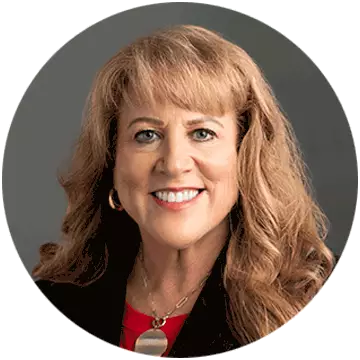What is a school guidance counselor?

Written by Michael Feder

Reviewed by Pamela M. Roggeman, EdD, Dean, College of Education

High school guidance counselors provide advice and support to help students determine their academic, personal and career goals. They typically work in public or private schools with students of all ages and help them develop strategies to achieve their educational goals. They also advocate for students’ social-emotional development by providing resources and referrals to help them navigate life.
Roles and responsibilities of school guidance counselors
High school is a heady and tumultuous experience for many students, and school guidance counselors can offer much-needed stability. The following are just some of the ways they fill this role.
Conflict mediation
School counselors may sometimes aid in conflict mediation. They act as neutral third parties to help students better understand each other and develop positive solutions to their problems. They may also provide conflict resolution training to teach students how to resolve future conflicts independently while maintaining respectful relationships.
Common conflicts that require mediation include issues between students include:
- Bullying
- Cyberbullying
- Peer pressure
A counselor’s purpose is to help prevent the escalation of conflicts and restore positive student relationships.
Listening to students' concerns
One of the most essential roles of a school counselor is to provide a safe and supportive environment for students to express their thoughts and feelings. High school guidance counselors must be able to offer an objective, nonjudgmental space where students can open up about their struggles without fear of ridicule or shame.
High school is a time of transition, and students often need someone to talk to. Counselors can help students cope with:
- Social pressures — Such as fitting in with their peers.
- Emotional issues — Such as depression and anxiety.
- Family stressors — Such as divorce, abuse or financial problems.
They can also provide valuable resources and referrals for outside assistance if needed.
School counselors must be aware of their legal and ethical obligations when offering counseling services. They must ensure that they provide appropriate care and support to students while protecting privacy, which includes an understanding of confidentiality laws to protect students from potential harm or exploitation.
Providing mental health support
School counselors can play an integral role in providing mental health support. They are often the first point of contact for students struggling with their mental health, and counselors must be able to recognize signs of distress. They can also identify and refer students who need additional help or counseling services. In addition, they can provide mental health resources and support to families to help them manage the challenges their children are facing.
The role, however, is not limited to detection and referral. They must also be prepared to provide direct counseling services, such as cognitive behavioral therapy and mindfulness-based stress reduction. In addition to helping students manage mental health issues, school counselors may work with parents to build effective communication strategies to help the student succeed.
Counselors must be adequately trained and certified in school counseling to provide these services. Depending on the state or district, this may require certification from the National Certified School Counselor™ Program, a branch of the National Board for Certified Counselors®.
Equipped with this certification, counselors can assist in times of crisis that occur both within the school or the local community, and are responsible in many cases for determining the validity of threat assessments and students in crisis.
Providing career and education advice
Guidance counselors can help students prepare for their future by providing career and educational advice. In addition, they may assist with the college admissions process, helping students develop an effective plan of action to maximize their chances of getting into schools that best fit their needs.
Counselors also work to help students write an effective resumé and cover letter, as well as practice important interviewing skills. They may also help students explore career paths and options related to their interests and skills. This can include researching degree programs, exploring scholarship opportunities or assisting in setting up job shadowing experiences.
School counselors are also responsible for a student’s master schedule. Students go to a counselor if they are looking to switch out a class or change an elective.
Providing helpful resources
Some students may face emotional issues such as body image, self-esteem and disability-related issues. Others may experience social issues such as pregnancies or substance abuse. Some may experience family stressors, such as neglect, homelessness and the death of a loved one. In these cases, counselors may provide helpful resources, such as food assistance programs, housing applications or other necessary financial aid information.
Guidance counselors can assist with college preparation activities, including college writing workshops and SAT or ACT prep classes. Additionally, they support students as they work on their applications, reviewing essays and providing feedback to strengthen their chances of admission.
They may also work to ensure that vocational training opportunities are offered to students who are not pursuing an advanced education by attending a university.
Facilitating Goal Development
Goal development is a critical component of the high school counseling process. Counselors work with students to set realistic and achievable goals that are tailored to a student’s needs and interests. This could include:
- Developing plans for academic success
- Identifying and developing personal interests, traits and skills
- Exploring potential career paths and creating job search strategies
- Creating a budget to help manage finances during college or career transitions
With so many looming choices and decisions, high school counselors can provide support and structure to help students develop meaningful goals, which are critical for helping students develop a sense of purpose and direction.
Coordinating students, parents and educators
Guidance counselors are responsible for communicating with educators, parents and students to ensure each party is on the same page regarding decisions about a student’s academic trajectory.
Counselors may attend parent-teacher conferences or serve as liaisons between the home and school. They may coordinate meetings between parents, teachers and administrators to discuss academic progress or challenges. This connectivity helps build stronger relationships between students and teachers, leading to better communication and more open dialogue.
Leading public health programs
Not only do school counselors provide advice and resources for individual students, but they can also take a lead role in facilitating public health programs. Public health programs are initiatives that focus on promoting the health and wellness of a school or community:
- Sexual health education teaches students about forms of contraception, safe sex practices and risks of sexually transmitted infections.
- Substance abuse prevention aims to prevent or reduce underage drinking and drug use among students by providing education and resources on the risks.
- Mental health awareness educates students on mental health topics such as depression, anxiety and suicide prevention.
- Bullying prevention campaigns work to create a safe and inclusive school environment by raising awareness about the impacts of bullying and providing resources for those who might be affected.
Leading these programs can help foster healthy relationships between students, teachers and administrators while promoting a sense of well-being in the school community. Counselors may also arrange for public speakers to discuss a variety of issues within the school.
Organizing and overseeing peer-led programs
- Study groups
- Mentorship circles
- Organized social events
School counselors may organize these programs or provide oversight to ensure they run smoothly and safely.
Representing student interests
- Writing letters of recommendation
- Giving presentations at conferences
- Advocating for policy changes that benefit students
- Ensuring equity, diversity and inclusion are honored
Guidance counselors are invaluable resources for helping students get the most out of their education — inside and outside the classroom.
How to become a high school guidance counselor
Students considering a career as a school guidance counselor typically need a master’s degree in school counseling. However, related fields such as general counseling and psychology may also be accepted. Depending on the program, students might even find a counseling degree with an emphasis in career development, which would be helpful for seeking a position as a high school counselor. It’s also important to keep in mind some states also require licensure.
Learn more about careers like school guidance counselor
Guidance counselors are invaluable resources for helping students get the most out of their education — inside and outside the classroom. Although University of Phoenix does not have direct degree alignment for this career outcome, it does offer several online education and behavioral science degrees if you’re interested in learning more about working with students in general or about mental health counseling.
Contact University of Phoenix for more information.

ABOUT THE AUTHOR
A graduate of Johns Hopkins University and its Writing Seminars program and winner of the Stephen A. Dixon Literary Prize, Michael Feder brings an eye for detail and a passion for research to every article he writes. His academic and professional background includes experience in marketing, content development, script writing and SEO. Today, he works as a multimedia specialist at University of Phoenix where he covers a variety of topics ranging from healthcare to IT.

ABOUT THE REVIEWER
As dean of the University of Phoenix College of Education, Pamela Roggeman has spent over a decade in higher education teacher preparation in both the public and private sector. Her experience has included national partnerships that help to advance thought leadership in the field of education. Dr. Roggeman also serves as the President of the Arizona Educational Foundation’s Board of Directors.
This article has been vetted by University of Phoenix's editorial advisory committee.
Read more about our editorial process.


